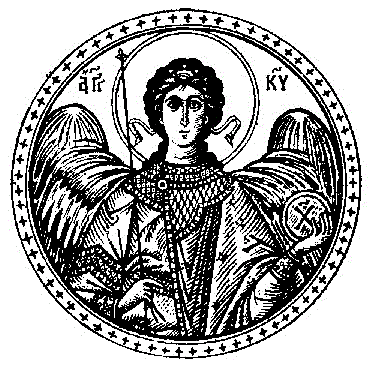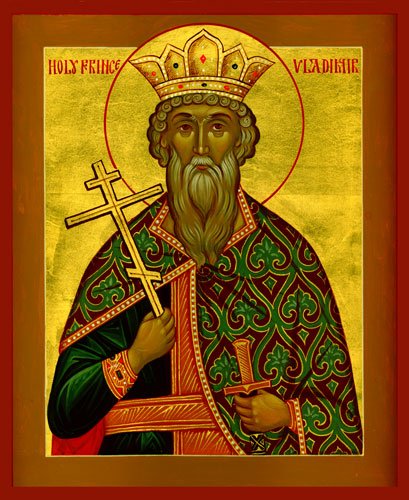For such a long time I thought that Christianity only came to the area of Rus, present day Ukraine, in 988 when Prince Volodymyr was baptized and forced all citizens to be baptized. As I have come to know and now share with you, my readers, Christianity’s advent into the area much predates that Baptism of Ukraine as we celebrate it.
In the last issue of this Bulletin, I shared with you that SS Cyril and Methodius first came to this area in 860. They stopped Chersonesus in Crimea, where they met a Rusyn and discovered a Gospel and Psalter written in the language of Rus. With the help of the local bishop, Georgiy, they also discovered the relics of St. Clement, Pope of Rome, who was martyred in the Crimea in the 1st century. In 867 they presented the relics of Clement to Pope Adrian II. It was after this trip to the Crimea that Cyril, with the assistance of his brother Methodius, developed the Cyrillic alphabet and began to translate religious texts into Slavonic.
In their chronicles Greek authors John Zonaras, Michael Glycas and others wrote that Rus converted to Christianity during the reign of Askold and Dyr and that Byzantium sent an archbishop there.
In 874 Patriarch Ignatius sent a bishop to Rus and established an Eparchy in Crimea which was juridically subordinate to the Patriarch of Constantinople.
Oleh, Prince of Novgorod, conquered Kiev, killed the Kievan princes Askold and Dyr and forced citizens back to paganism.
Christianity was, however, widespread in Peremyshl at the time when St. Methodius was the archbishop of Moravia.
Prince Oleh signed in 911 a treaty with the Greeks and peoples from Rus began to visit Byzantium. In 945 Prince Ihor, who followed Prince Oleh, signed another treaty with Byzantinum. This treaty was the first document in Kievan Rus to recognize Christianity.
Upon the death of Grand Prince Ihor, his wife, Olha, became the ruler of Kiev, because of their son Svyatoslav’s minor age. During her reign (959) she converted to Christianity.
Prince Volodymyr emerged victorious from the fratricidal war among the sons of Svyatoslav. He steadily came under the influence of Christians. Of his five wives, four were Christian. In 988 he led an assault on a Crimean city which was a major Byzantine colony. After taking the city, he demanded that the Byzantine emperors give him their only sister, Anna, in marriage. The emperors agreed but insisted upon a precondition to the marriage, namely Volodymyr’s conversion to Christianity.
Through this whole story we see the movement of God in bringing Christianity to a people. Byzantium has, throughout the history of this area, been the major religious force.




